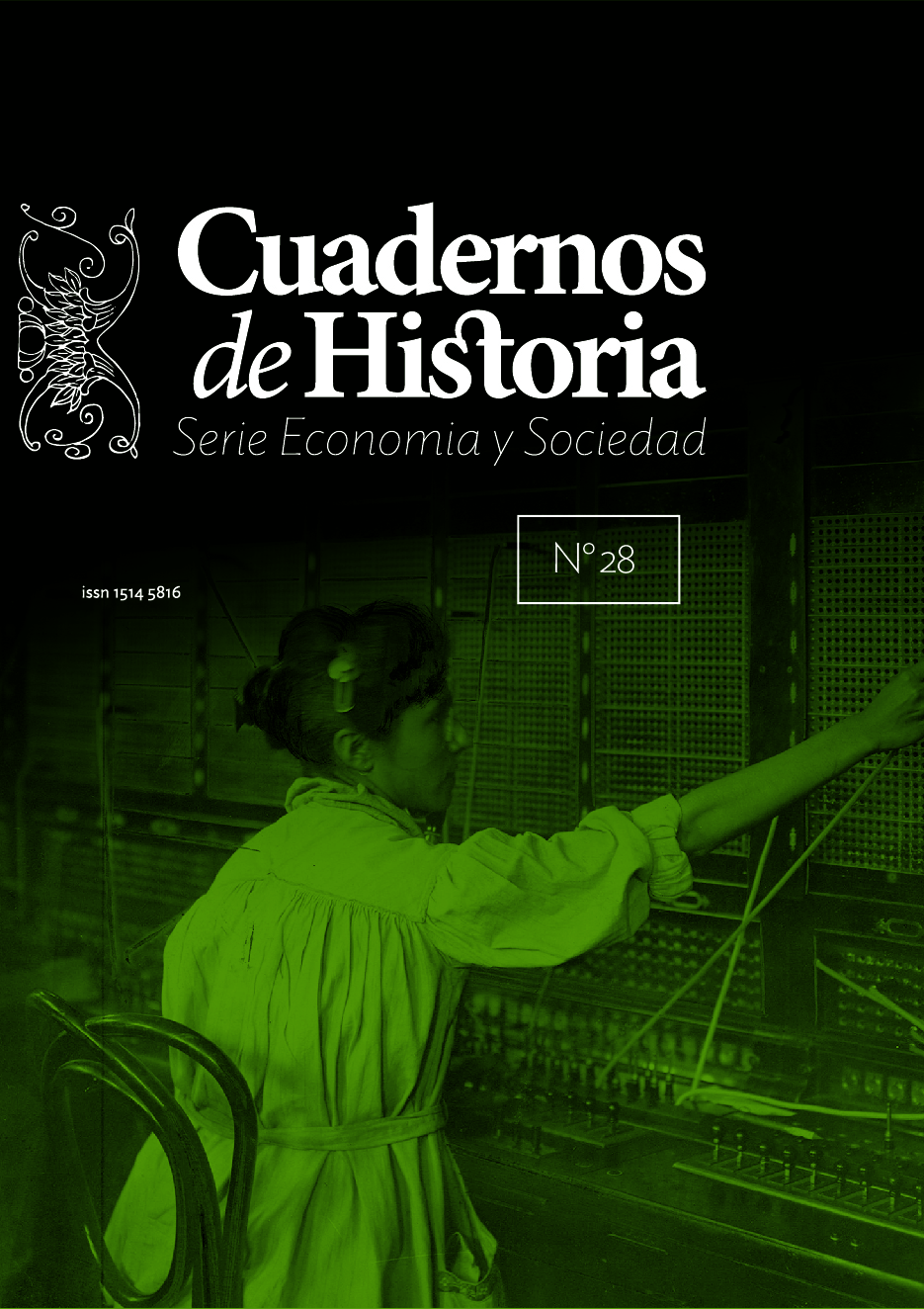Apuntes para un mapa teórico de la violencia política revolucionaria
DOI:
https://doi.org/10.53872/2422.7544.n28.36421Keywords:
Revolutionary Political Violence, Theoretical ApproachAbstract
This research is based on a perspective that understands political violence as an expression of sociohistorical relationships. It combines a historiographic and a sociohistorical point of view, enriched by the contributions of political science’s conceptualizations, intending to analyze, mainly, the revolutionary violence in a theoretical aspect. This attempt results from our research in Córdoba during the seventies and sixties focused on The Worker’s Revolutionary Party-Revolutionary Army of the People’s perspective.
As we mentioned, we found theoretical, unsatisfactory and slanted developments and even moral sentences about the revolutionary political violence throughout this aspect.
In all cases, they blocked analytic approaches that avoid bare descriptionism. In other words, we pretend to contribute to a theoretical, conceptual approximation that is not far from empiric components but that aims to separate from the descriptive researches and the studies of case.
References
Acha, O. 2012, Un revisionismo histórico de izquierda y otros ensayos de política intelectual, Ediciones Herramienta, Buenos Aires.
Ansaldi, W & Giordano, V. 2014, América Latina. Tiempos de Violencias, Ariel, Buenos Aires.
Arostegui, J. 1994. “Violencia, sociedad y política: la definición de la violencia” en Ayer, 13, pp. 17 a 55.
Cadarso, P. 2001, Fundamentos teóricos del conflicto social, Siglo XXI de España Editores, Madrid.
Feierstein, D. 2011, “Sobre conceptos, memorias e identidades: guerra, genocidio y/o terrorismo de Estado en Argentina” en Política y Sociedad, 48, 3, pp. 571 a 586.
González Calleja, E. 2000 “La definición y la caracterización de la violencia desde el punto de vista de las ciencias sociales” en Arbor, 167, 657, pp. 153 a 185.
González Calleja, E. 2002, La violencia en política. Perspectivas teóricas sobre el empleo deliberado de la fuerza en conflictos de poder, CSIC, Madrid.
González Calleja, E. 2017a, Asalto al Poder. La violencia política organizada y las ciencias sociales, Siglo XXI, Madrid.
González Calleja, E. 2017b, “Bellum omnium contra ommes. Una reflexión general sobre el empleo deliberado de la fuerza en los conflictos políticos” en Ferreira A. Madeira J. & Casanellas P (coord.) Violência política no século XX Um balanço, Instituto de História Contemporânea, Lisboa, pp. 10 a 31.
Grüner, E. 2007, Las formas de la espada. Miserias de la teoría política de la violencia, Colihue, Buenos Aires.
Inchauspe, L. 2018, “Guerras por la paz. Tradiciones teóricas influyentes en las concepciones político - militares del Partido Revolucionario de los Trabajadores - Ejército Revolucionario del Pueblo (PRT-ERP)” en Goicovic, I. & Vasallo, J. (Comp.) América Latina: violencias en la Historia. América en Movimiento, Valparaíso, pp. 137 a 160.
Nercesian, I. 2013, La política en armas y las armas de la política: Brasil, Chile y Uruguay 1950-1970, CLACSO, Buenos Aires.
O’Donnell, G. 1996 [1982], El Estado Burocrático Autoritario. Triunfos, derrotas y crisis, Editorial de Belgrano, Buenos Aires.
Raina, A. 2014, “Problemas conceptuales relativos a un momento histórico: Representaciones de la violencia política de los años '70 en el marco social actual” Disponible en: http://www.memoria.fahce.unlp.edu.ar/trab_eventos/ev.4476/ev.4476.pdf
[Consulta: 26 de septiembre de 2021]
Seminara, L. 2018, “Las organizaciones armadas en la historia reciente argentina. Alcances y proyecciones de un recorrido historiográfico” en Águila, G et. al (Comp.) La historia reciente en Argentina. Balance de una historiografía pionera en América Latina, Imago Mundi, Buenos Aires, pp. 1 a 18.
Suñé Domènech, R. 2010, Los Fundamentos éticos de la violencia revolucionaria: una perspectiva sobre la violencia, Universitat Pompeu Fabra Barcelona.
Downloads
Published
Issue
Section
License

This work is licensed under a Creative Commons Attribution 4.0 International License.
Authors publishing in this journal accept the following terms:
a. The author maintains their copyrights and grants this journal the publication of the first original version of their work that is subject to the Creative Commons Attribution License 4.0. This license agreement allows:
Sharing — copy and redistribution of the published material by any means and formats
Reusing — remix, change, and creation of new material from the published work for any purpose, including commercial use.
b. Authors may enter other non-exclusive license agreements of distribution of the version of the published work (i.e. uploading the material on an institutional virtual archive or republishing it on a monographic volume) as long as they attribute the publication of the original version to this journal.
c. It is allowed and recommended that authors publicize their work on the Internet (i.e. on institutional virtual archives or on their personal or professional websites) after their work has been published in this journal.




